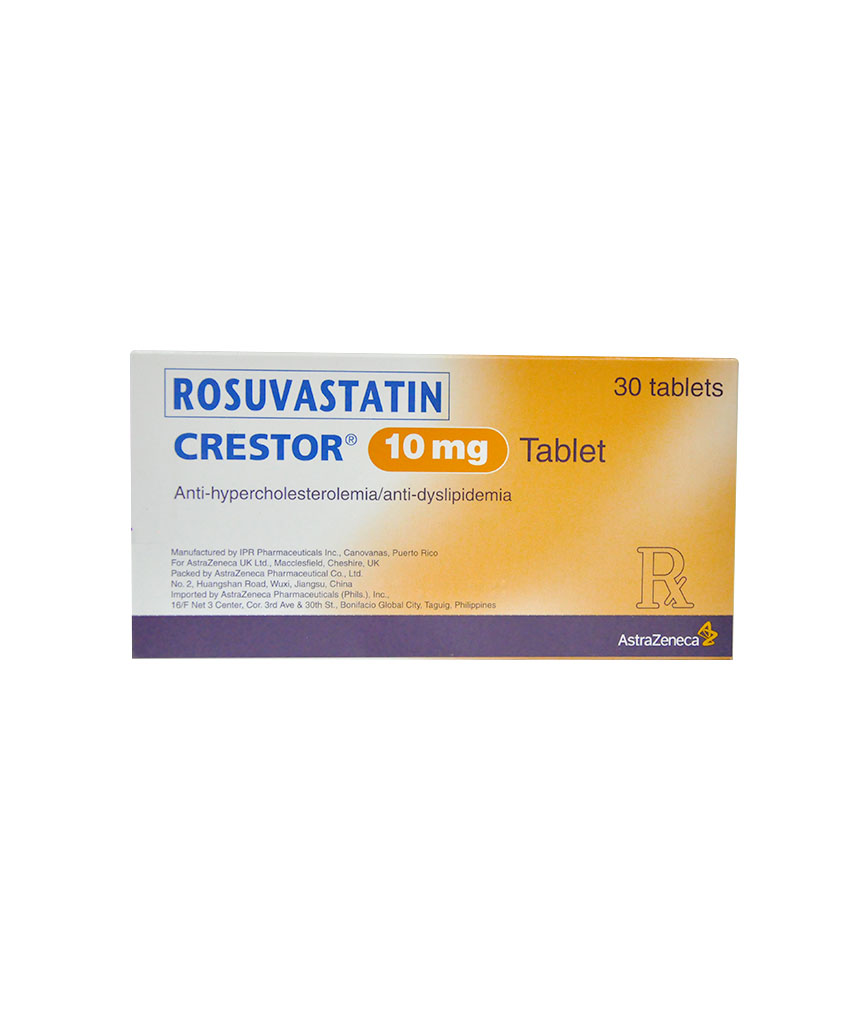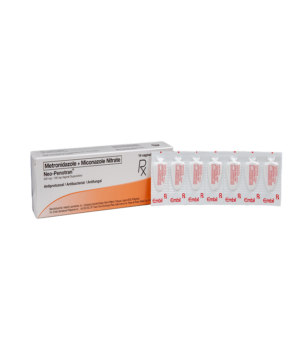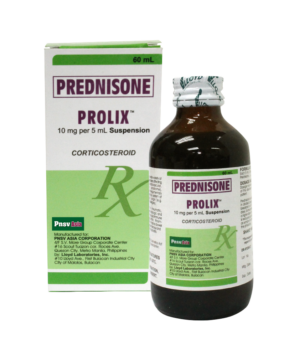Clariget 500Mg Tablet
₱62.75
IMPORTANT NOTICE: We require a doctor’s prescription for this product. Don’t forget to attach a copy of your valid prescription (.jpeg, .pdf, or .png format) upon checkout, or email it to [email protected] with your order number! To confirm your order and validate your prescription, our pharmacist will be in touch after you place your order. For a smoother transaction upon delivery, please be ready to present the original copy of your prescription when claiming your order.
* SOLD PER TABLET
CLARIGET 500MG TABLET
* SOLD PER TABLET
Generic Name: CLARITHROMYCIN 500MG TAB
Clarithromycin is a semisynthetic macrolide antibiotic obtained by substitution of the hydroxyl group in position 6 by a CH3O group in the erythromycin lactonic ring. Chemically, clarithromycin is 6-O-methylerythromycin. The molecular formula is C38H69NO13.
- Applicable for Metro Cebu order
- Credit Card, GCash, Maya, Bank Transfer and COD payment available
- Daily Operations - 8:00 AM to 6:00 PM
- Order Cut-off - 3:00 PM
- Free Shipping for 1,499 and above orders (Visayas & Mindanao)
- For Order below 1,499 delivery fee of 99.00 (less than 1 kilo) will be applied
- For Order below 1,499 delivery fee of 199.00 (1 -3 kilo) will be applied
- Credit Card, GCash, Maya and Bank Transfer payment available
- Description
- Reviews (0)
Description
CLARIGET 500MG TABLET
Description :
Clarithromycin is a semisynthetic macrolide antibiotic obtained by substitution of the hydroxyl group in position 6 by a CH3O group in the erythromycin lactonic ring. Chemically, clarithromycin is 6-O-methylerythromycin. The molecular formula is C38H69NO13.
Indications / Uses :
Treatment of infections due to susceptible organisms.
Clariget/Clariget OD: Such infections include: Lower respiratory tract infections (eg, bronchitis, pneumonia); upper respiratory infections (eg, pharyngitis, sinusitis, tonsillitis); skin and soft tissue infections (eg, folliculitis, cellulitis, erysipelas)
Clariget: Acute otitis media in children. Leprosy; disseminated or localized mycobacterial infections due to Mycobacterium avium or M. intracellulare, localized infections due to M. chelonae, M. fortuitum or M. kansasii; used in some countries as an alternative to penicillins for prophylaxis of endocarditis; to eradicate Helicobacter pylori in treatment regimens for peptic ulcer disease. It has been tried in protozoal infections, including toxoplasmosis; prevention of disseminated M. avium complex (MAC) disease in patients with advanced HIV infection.
Administration :
May be taken with or without food.
Contraindications :
Patients with known hypersensitivity to macrolide antibiotic drugs.
Clariget: Concomitant administration of clarithromycin with any of the following medicines is contraindicated: Astemizole, cisapride, pimozide and terfenadine.
Clariget OD: Patients with creatinine clearance <30 mL/min.
Concomitant administration with the following drugs: Astemizole, pimozide, cisapride, terfenadine, ergotamine or dihydroergotamine.
Clarithromycin in combination with ranitidine bismuth citrate should not be used in patients with a history of acute porphyria
Special Precautions :
Clariget: Caution is required in patients with impaired renal or hepatic function and doses should be reduced in those with severe renal impairment.
Caution should also be paid to the possibility of cross-resistance between clarithromycin and other macrolide drugs, as well as lincomycin and clindamycin.
Pseudomembranous colitis has been reported with nearly all antibacterial agents, including macrolides, and may range in severity from mild to life-threatening.
Clarithromycin in combination with ranitidine bismuth citrate therapy should not be used in patients with a history of acute porphyria.
Clariget OD: Long-term use may, as with other antibiotics, result in colonization with increased numbers of non-susceptible bacteria and fungi. If superinfections occur, appropriate therapy should be instituted.
Caution should be exercised in administering clarithromycin to patients with impaired hepatic function and moderate renal function.
Caution should also be paid to the possibility of cross-resistances between clarithromycin and other macrolide drugs, as well as lincomycin and clindamycin.
Pseudomembranous colitis has been reported with nearly all antibacterial agents, including clarithromycin, and may range in severity from mild to life-threatening. Therefore it is important to consider this diagnosis in patients who have diarrhea subsequent to the administration of antibacterial agents. After the diagnosis of pseudomembranous colitis has been established, therapeutic measures should be initiated.
It may cause exacerbation of symptoms of myasthenia gravis.
Hepatic Impairment and Renal Insufficiency: Clarithromycin may be administered without dosage adjustment to patients with hepatic impairment and normal renal function. However, in the presence of severe renal impairment with or without coexisting hepatic impairment, decreased dosage or prolonged dosing intervals may be appropriate.
Use in Children: Clariget OD: Safety and effectiveness of clarithromycin in pediatric patients <6 months have not been established.
Use in Elderly: Clariget OD: Elderly patients with severe renal impairment may require a decrease in dose.
Use in Pregnancy & Lactation: Clariget: Clarithromycin is excreted into human breast milk, therefore, clarithromycin should not be used during pregnancy and breastfeeding unless the potential benefit justifies a potential risk to the fetus.
If clarithromycin pediatric suspension is considered for patients of postpubertal age, the physician should carefully weigh the benefits against the risk when pregnancy is either suspected or confirmed.
Clariget OD: Clarithromycin should be used during pregnancy only if the potential benefits justifies the potential risk to the fetus. It should not be prescribed particularly during the first 3 months of pregnancy.
The safety of clarithromycin during breastfeeding of infants has not been established. Clarithromycin is excreted into human breast milk.
Be the first to review “Clariget 500Mg Tablet”
You must be logged in to post a review.




















Reviews
There are no reviews yet.